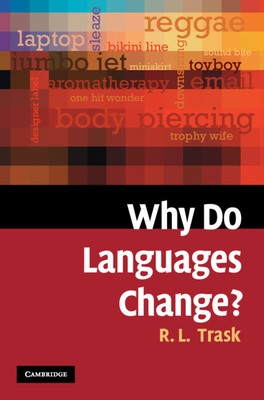
- We will send in 10–14 business days.
- Author: Larry Trask
- Publisher: Cambridge University Press
- ISBN-10: 0521838029
- ISBN-13: 9780521838023
- Format: 15.5 x 22.9 x 1.5 cm, hardcover
- Language: English
- SAVE -10% with code: EXTRA
Reviews
Description
The first recorded English name for the make-up we now call blusher was paint, in 1660. In the 1700s a new word, rouge, displaced paint, and remained in standard usage for around two centuries. Then, in 1965, an advertisement coined a new word for the product: blusher. Each generation speaks a little differently, and every language is constantly changing. It is not only words that change, every aspect of a language changes over time - pronunciation, word-meanings and grammar. Packed with fascinating examples of changes in the English language over time, this entertaining book explores the origin of words and place names, the differences between British and American English, and the apparent eccentricities of the English spelling system. Amusingly written yet deeply instructive, it will be enjoyed by anyone involved in studying the English language and its history, as well as anyone interested in how and why languages change.
EXTRA 10 % discount with code: EXTRA
The promotion ends in 19d.12:02:13
The discount code is valid when purchasing from 10 €. Discounts do not stack.
- Author: Larry Trask
- Publisher: Cambridge University Press
- ISBN-10: 0521838029
- ISBN-13: 9780521838023
- Format: 15.5 x 22.9 x 1.5 cm, hardcover
- Language: English English
The first recorded English name for the make-up we now call blusher was paint, in 1660. In the 1700s a new word, rouge, displaced paint, and remained in standard usage for around two centuries. Then, in 1965, an advertisement coined a new word for the product: blusher. Each generation speaks a little differently, and every language is constantly changing. It is not only words that change, every aspect of a language changes over time - pronunciation, word-meanings and grammar. Packed with fascinating examples of changes in the English language over time, this entertaining book explores the origin of words and place names, the differences between British and American English, and the apparent eccentricities of the English spelling system. Amusingly written yet deeply instructive, it will be enjoyed by anyone involved in studying the English language and its history, as well as anyone interested in how and why languages change.


Reviews